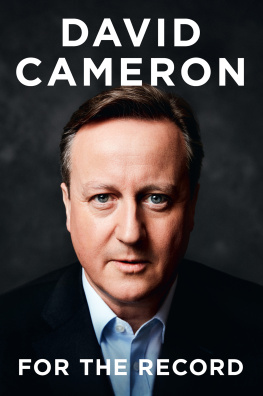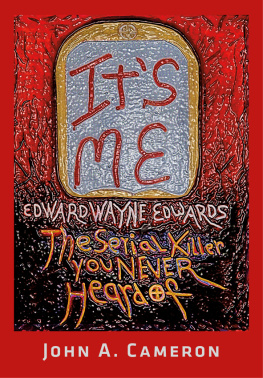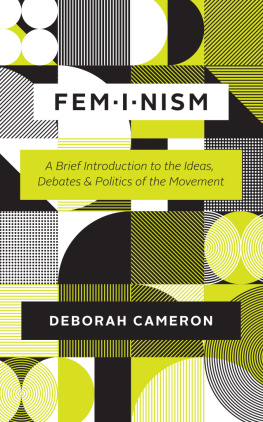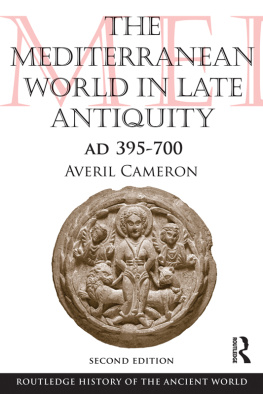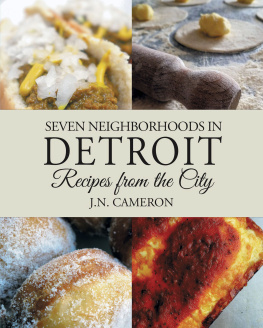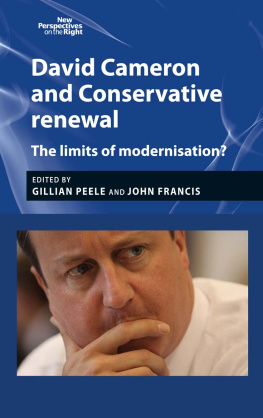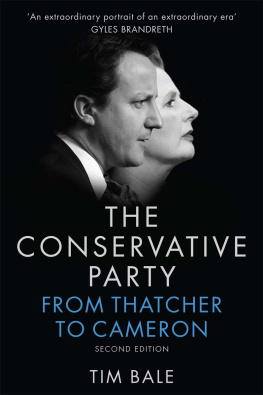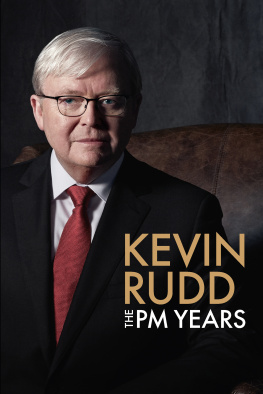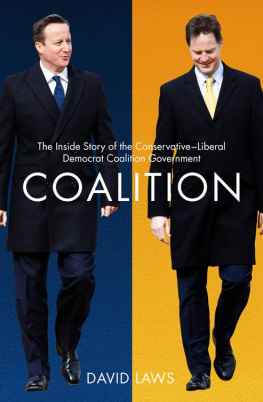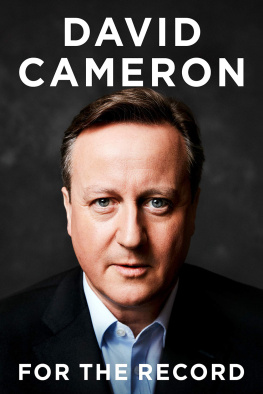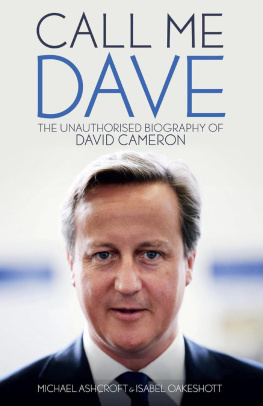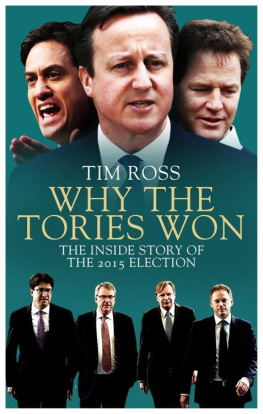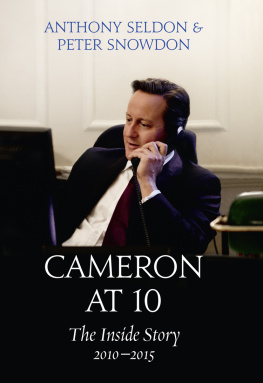Table of Contents
Landmarks
DAVID CAMERON was born in 1966 and attended Eton College and Oxford University. In 2001 he became the Member of Parliament for Witney in Oxfordshire. Four years later he was elected Leader of the Conservative Party, implementing a program of modernization. After the 2010 election, he became prime minister of a coalition government that turned around the United Kingdoms economy and radically reformed public services. In 2015 he won the first outright Conservative majority in twenty-three years. He resigned a year later, after the referendum he called on Britains membership in the European Union resulted in a vote to leave.
David lives in London and Oxfordshire with his wife, Samantha, and their three children, Nancy, Elwen, and Florence. His focuses since leaving office include international development; youth volunteering; and technology-driven sectors such as fintech, biotech, and AI. He maintains his commitment to defeating dementia as president of Alzheimers Research UK.
Discover great authors, exclusive offers, and more at hc.com .
Australia
HarperCollins Publishers Australia Pty. Ltd.
Level 13, 201 Elizabeth Street
Sydney, NSW 2000, Australia
www.harpercollins.com.au
Canada
HarperCollins Publishers Ltd
Bay Adelaide Centre, East Tower
22 Adelaide Street West, 41st Floor
Toronto, Ontario, M5H 4E3
www.harpercollins.ca
India
HarperCollins India
A 75, Sector 57
Noida
Uttar Pradesh 201 301
www.harpercollins.co.in
New Zealand
HarperCollins Publishers New Zealand
Unit D1, 63 Apollo Drive
Rosedale 0632
Auckland, New Zealand
www.harpercollins.co.nz
United Kingdom
HarperCollins Publishers Ltd.
1 London Bridge Street
London SE1 9GF, UK
www.harpercollins.co.uk
United States
HarperCollins Publishers Inc.
195 Broadway
New York, NY 10007
www.harpercollins.com
On Friday, 7 May 2010 I woke up in a dark, modern hotel room opposite the Houses of Parliament feeling deeply disappointed.
I had led the Conservative Party for half a decade, modernised it and steered it through a gruelling general election campaign. We had won more seats than any other party more new seats than at any election for eighty years. We were the largest party in Parliament by far.
But it wasnt enough. For the first time in decades that glorious, golden building across the Thames was hung, because no single party had reached the absolute majority needed to form a government.
That wasnt just a blow to my party, it was in my view a blow to Britain. The country had just suffered the worst recession since the Second World War. Banks had been nationalised, businesses had folded and unemployment was climbing to a fifteen-year high. Just a few days earlier, Greece had been bailed out by the EU and the IMF. Athens was ablaze, our TV screens filled with images of protesters burning tyres and clashing with riot police in response to the austerity the bailout demanded.
Not only was our economy entwined with those on the continent. Our budget deficit was projected to be 11 per cent of GDP the same as Greeces. We also needed dramatic reforms, and couldnt go on spending as we had. A stable, decisive government was more important than ever.
Yet we were far from that now. And while thirty million people had voted, what happened next would be largely down to just three of them: the serving Labour prime minister, Gordon Brown; the leader of the Liberal Democrats, Nick Clegg; and me.
So much has been written about the days that followed that election result. Documentaries, books and even films have catalogued every meeting and every moment, every twist and every turn. What can I add? Well, the emotions I felt. The things that motivated me, and people who influenced me. An insight not just into the rooms in which events took place, but into my mind when the decisions were made. In short, what it was like to be right at the centre during that extraordinary time in British politics.
So, Friday started with disappointment. We had failed to win some of the seats we should have won and failed to seal the deal with the British people. Thirteen long years of opposition still werent over.
Of course, there was also a sense of relief. I had travelled 10,000 miles in the past month, trying to squeeze every last vote out of every marginal constituency, culminating in a twenty-four-hour length-and-breadth tour of Britain. I was exhausted.
The previous day, my team and I had met at the home of Steve Hilton, not far from my constituency home in the village of Dean, West Oxfordshire, and talked about the electoral outlook. Steve and I had worked together at the partys headquarters, Conservative Central Office, during our twenties. He had become renowned as a left-field thinker of the centre-right passionate, bold, volatile, magnetic, and Id made him my director of strategy. He was also a close friend to me and my wife, Samantha, and godfather to our first child, Ivan.
The magic number was 326: that was how many seats were needed for an absolute majority. But I knew all the marginal constituencies well, and I just didnt see us winning them all. I predicted wed end up with between 300 and 310 seats.
One person who had come to the same conclusion and we often reached the same conclusion was George Osborne, shadow chancellor and chief of our general election campaign. Five years younger than me, he was my partner in politics: urban while I was more rural, realistic where I would sometimes let ideas run away with me, and more politically astute than anyone Id ever met. He impressed me every single day.
The final tally of Conservative MPs was 306. While that was more or less what I had expected, what did surprise me was that the Lib Dems in many ways the stars of the campaign, after Nick Cleggs initial success in Britains first-ever TV election debates had done worse than predicted, and lost seats. Labour despite its unpopular leader, despite being obviously tired after thirteen years in power, despite having presided over the biggest financial crash in living memory, and despite many forecasts to the contrary had done better than predicted.
I was surprised, too, by the ambiguity of the result. Whenever people had asked me beforehand what I would do in the event of a hung Parliament, I said I would do what democracy dictated. I thought that the result would point to an obvious outcome. If we were the largest party, we would form a minority government or less likely a coalition. If Labour was the largest party, it would do the same.
But that Friday morning I realised things hadnt turned out like that. Democracy hadnt been decisive, so I would have to be.
I was alone in that hotel room. Samantha, heavily pregnant with our fourth child, had gone home to get our children, Nancy and Elwen, ready for school. I ran through all the permutations. All I could think when I considered each was what my dad used to say to me: If youre not sure what to do, just do the right thing.
A Conservative minority government was one clear option. With the most seats, we had a real claim to govern. But it would mean six months or more of playing politics day after day, trying to create the circumstances for a successful second general election. And at a time when the global economy was in peril, I knew instinctively that it would be the wrong option.
In any event, there was another real possibility: a rainbow coalition of Labour, Lib Dems and other minor parties, which together constituted an anti-Tory majority. I knew that some in our party would say, let them get on with it. Wait while they forge a shaky alliance and then watch it collapse, forcing a new general election in months.

